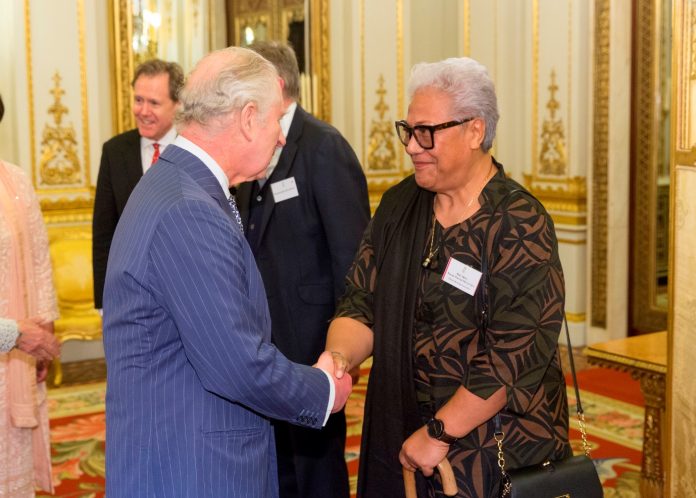The world must step back from the brink of climate disaster to save the people of the Pacific from obliteration, the prime minister of Samoa has urged.
On the eve of a landmark report by the Intergovernmental Panel on Climate Change, which is expected to deliver a scientific “final warning” on the climate emergency, Fiame Naomi Mata’afa, Samoa’s prime minister, issued a desperate plea for action.
“We’re all impacted, but the degree of the impact is in the particular circumstance of countries. So our low-lying atoll countries, it’s right there, we’re living with it,” said Mata’afa.
“There are already examples in the Pacific of communities, whole communities, that have relocated to different countries,” she said. “They’re really having to address issues of sovereignty through loss of land.”
Mata’afa warned that all countries would face escalating damage unless they acted now. “This is a collective issue, no one is free from the impacts of climate change,” she said, in an interview with the Guardian. “So it’s very important for the global family to hold to determinations [to cut greenhouse gas emissions] that have already been made. It seems more immediate for us [in the Pacific] but it’s still impacting all of us.”
On Monday, the IPCC will produce the final summary of its latest appraisal of global climate science. Known as the “synthesis report”, it is expected to warn that the world has only a few years in which to achieve a profound shift to a global low-carbon economy, or face catastrophe from extreme weather, including rising sea levels, intense heatwaves and devastating droughts, heavier floods and a cascade of other impacts.
The report will also set out ways in which to achieve this low-carbon economy, and to keep global heating within the crucial threshold of 1.5C above pre-industrial levels, beyond which the IPCC has warned of impacts that will rapidly become catastrophic and irreversible.
Mata’afa said: “With the work of the IPCC, there is a glimmering hope that there is a body of evidence that can support the decisions that need to be made. [People in Samoa are] having faith that [this message] will bear through.”
The IPCC is the world’s leading body of climate scientists, with hundreds of lead authors drawing on the peer-reviewed work of thousands of scientists to produce comprehensive reports, thousands of pages long, that sum up global knowledge of the crisis.
Over the last two years, the IPCC has released its sixth such assessment since 1988, in three parts from August 2021 to March 2022. This final report, called the synthesis report, will summarise the previous warnings and present them to global governments.
IPCC reports take six to eight years to compile, so this will be the last before 2030, by which time the world may have already breached the 1.5C threshold, unless greenhouse gas emissions fall rapidly in the next few years.
Prof Emily Shuckburgh, the director of Cambridge Zero at the University of Cambridge, said: “The science is clearer than ever, and once more the world’s scientists remind us how little time we have left to limit warming to 1.5C. Even now, at 1.1C, climate impacts are deadly.”
Alok Sharma, the president of the Cop26 UN climate summit in 2021, said governments must respond. “The IPCC’s reports continue to be wake-up calls for world leaders to act much faster if we are to have any hope of keeping 1.5C alive. While we are seeing some progress, frankly, we are moving far too slowly in decarbonising our economies and adapting to the changing climate,” he told the Guardian.
He called for more investment. “Finance is key, and delivering the trillions of dollars for climate action, which many leaders have talked about, is now critical,” he said.
The islands of the Pacific represent some of the most at-risk nations, and had been instrumental in calling for other countries to accept the 1.5C limit, said Mata’afa.
Samoa, made up of nine small islands in the mid-Pacific, about halfway between New Zealand and Hawaii, contains some higher ground than many of its atoll neighbours. But the country is still facing rising seas and more devastating storms.
Mata’afa, Samoa’s first female PM, attended a Commonwealth Secretariat event in London last week, where the role of women in tackling the climate crisis was discussed.
SOURCE: THE GUARDIAN/PACNEWS














